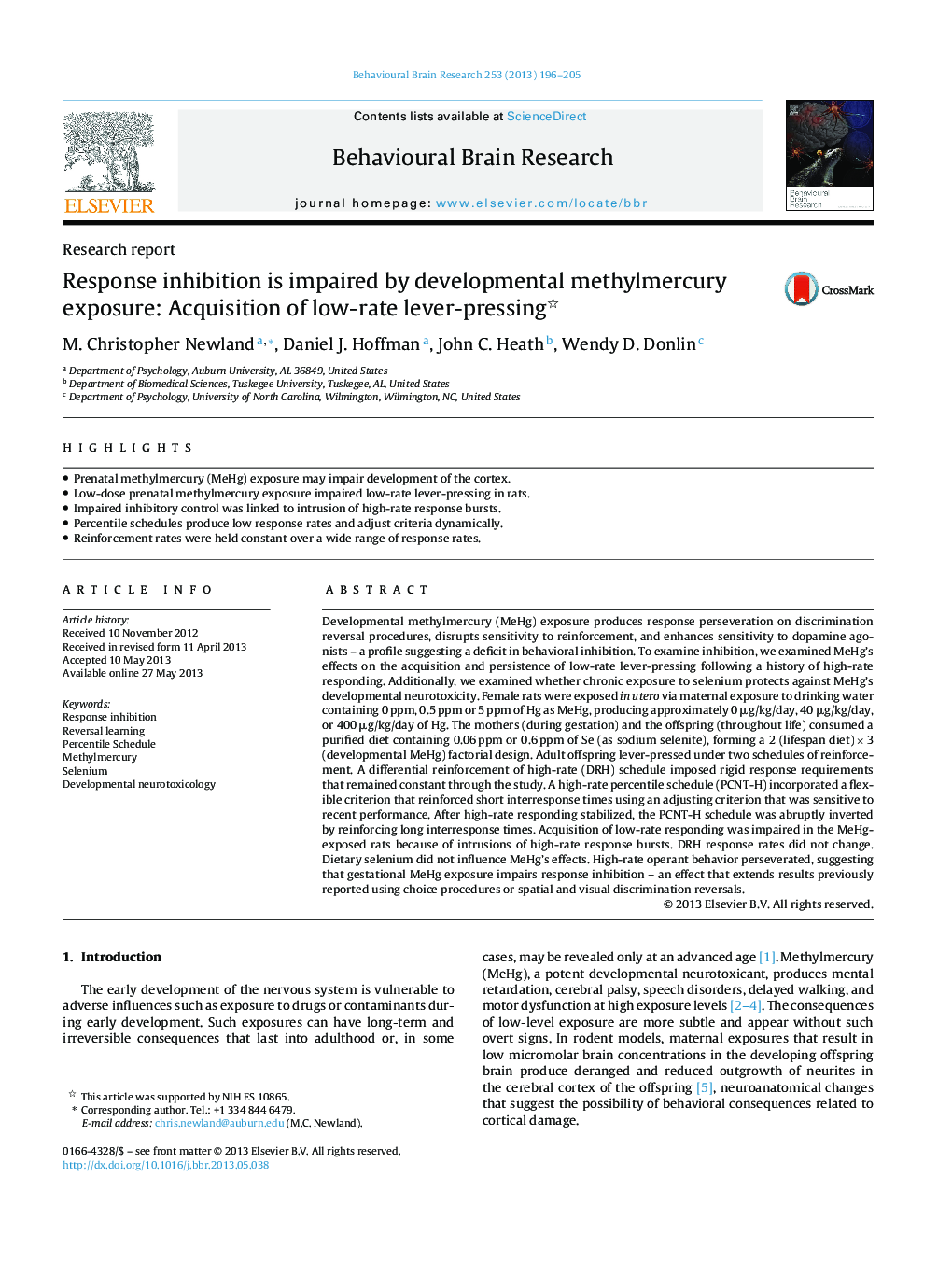| Article ID | Journal | Published Year | Pages | File Type |
|---|---|---|---|---|
| 6258664 | Behavioural Brain Research | 2013 | 10 Pages |
â¢Prenatal methylmercury (MeHg) exposure may impair development of the cortex.â¢Low-dose prenatal methylmercury exposure impaired low-rate lever-pressing in rats.â¢Impaired inhibitory control was linked to intrusion of high-rate response bursts.â¢Percentile schedules produce low response rates and adjust criteria dynamically.â¢Reinforcement rates were held constant over a wide range of response rates.
Developmental methylmercury (MeHg) exposure produces response perseveration on discrimination reversal procedures, disrupts sensitivity to reinforcement, and enhances sensitivity to dopamine agonists - a profile suggesting a deficit in behavioral inhibition. To examine inhibition, we examined MeHg's effects on the acquisition and persistence of low-rate lever-pressing following a history of high-rate responding. Additionally, we examined whether chronic exposure to selenium protects against MeHg's developmental neurotoxicity. Female rats were exposed in utero via maternal exposure to drinking water containing 0 ppm, 0.5 ppm or 5 ppm of Hg as MeHg, producing approximately 0 μg/kg/day, 40 μg/kg/day, or 400 μg/kg/day of Hg. The mothers (during gestation) and the offspring (throughout life) consumed a purified diet containing 0.06 ppm or 0.6 ppm of Se (as sodium selenite), forming a 2 (lifespan diet) Ã 3 (developmental MeHg) factorial design. Adult offspring lever-pressed under two schedules of reinforcement. A differential reinforcement of high-rate (DRH) schedule imposed rigid response requirements that remained constant through the study. A high-rate percentile schedule (PCNT-H) incorporated a flexible criterion that reinforced short interresponse times using an adjusting criterion that was sensitive to recent performance. After high-rate responding stabilized, the PCNT-H schedule was abruptly inverted by reinforcing long interresponse times. Acquisition of low-rate responding was impaired in the MeHg-exposed rats because of intrusions of high-rate response bursts. DRH response rates did not change. Dietary selenium did not influence MeHg's effects. High-rate operant behavior perseverated, suggesting that gestational MeHg exposure impairs response inhibition - an effect that extends results previously reported using choice procedures or spatial and visual discrimination reversals.
